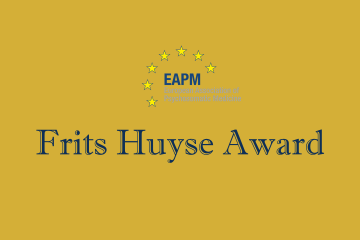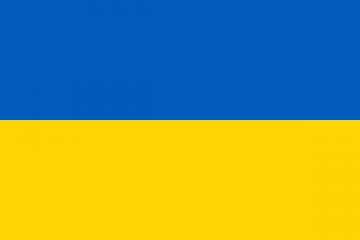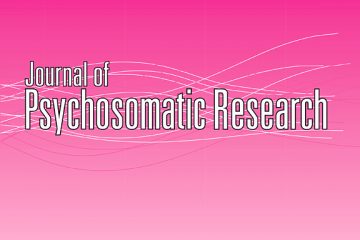NEW EVENTS IN THE DEVELOPMENT OF THE BULGARIAN PSYCHOSOMATIC MEDICINE AND CONSULTATION – LIAISON PSYCHIATRY
written by Ivo I. Natsov, Evgeni U. Haritov in September 2018

Ivo Natsov
Introduction
A National Programme for Mental Health Reform, a Public Health Act concerning the mental health in its fourth part, a National Framework Agreement, determining the status of the psychiatrists in the outpatient and hospital care, as well as a Medical standard “Psychiatry”[1,2,3],standardizing the activities of the specialists within the mental-health discourse exist for several years now in Bulgaria. In general, tthey created real prerequisites for addressing the psychiatric prevalence in the community. These fundamental documents and the related regulations failed to resolve important problems in the field of mental-health services for the population, but generated more of them.
The psychiatric iceberg in Bulgaria
Beneath the visible part of the regulatory framework remain real organizational and ethical problems:
1. Discrimination of patients by the indication “mental problem”[4].
• The patients of the General Hospitals do not have the same level of access to a psychiatrist- consultant, which access they have to the rest of the medical specialists.
• In the General Hospitals the quality of the medical care for patients with mental problems is not the same to the one provided for patients with somatic diseases.
• In the General Hospitals the quality of the provided medical care is not the same regardless of age
2. The public psychiatric hospitals are not able to provide timely consultative assistance on the occasion of accompanying somatic problems[5].
• The public psychiatric hospitals function in a risky situation when admitting an emergency patient, due to the difficulties they have when carrying out urgent laboratory tests of basic vital signs.
3. Discrimination of Psychiatry by the indication “profession”[4].
• The Consultation Psychiatry is excluded from the financing under the Clinical pathways;
• There is an inequality in the financing of the different types of stationary psychiatric care; “budgetary” in the public psychiatric hospitals and “per treated patient” in the mental-health centres and in the small number of psychiatric wards of the general hospitals. This creates a situation, where the budgetary services have no motivation to treat more patients, that cost nothing, and the mental health centres and the hospital wards earn a subsidy from the Ministry of Health in the form of “bed turnover”/ for example 7 days instead of 20/, which is ridiculous in Psychiatry[6].
The result is the marginalization of Psychiatry apart from the other domains of the medicine and the public health.
BULGARIAN WORKING GROUP IN PSYCHOSOMATIC MEDICINE, CONSULTATION – LIAISON PSYCHIATRY AND INTEGRATIVE CARE
The creation of a working group in Psychfsomatic Medicine, Consultation – Liaison Psychiatry and Integrative Care was undertaken on 22.04.2017, in hall “ Georgi Koychev” of Urban Dispensary for mental illnesses “Nikola Shipkovenski” in Sofia under the initiative of Dr Ivo Natsov, discussed /during his lifetime/ with assoc. prof. Georgi Koychev, Dr N. Markov, prof. L. Hranov, prof. P. Marinov, prof. R. Shishkov, supported by prof. G. Onchev, prof. Dr. Stojanov whose main objectives are:
• To continue the traditions of the Bulgarian Psychosomatic Society, founded by prof. Vl. Ivanov and managed by prof. Ts. Tsonev.
• To promote and integrate the psychosomatic /biopsychosocial/ approach toward health and disease.
• To promote the treatment and the care in General Hospitals, Specialized Hospitals , Diagnostic and Consultation Centres, Medical Centres, General practices and other outpatient structures for patients with psychiatric disorders and psychological problems, who suffer or not from bodily disorders.
• To stimulate and support research in the areas of the Psychosomatic Medicine.
• To be a forum for presentation, spreading and discussion of the scientific problems and achievements in the Psychosomatic Medicine.
• To stimulate the fellowship relations among the participants in this process and create conditions for mutual support.
• To be a meeting place for all specialists related to the medical profession, including students, graduates and young researchers.
• To advice the public administration about the problems of the Psychosomatic Medicine.
• To connect the Bulgarian Psychosomatic Medicine with the good theories and practices of the
European and World Psychosomatic Medicine.
THE ACHIEVEMENT OF THESE OBJECTIVES WILL BE CARRIED OUT BY MEANS OF;
• Organization of scientific meetings, promotion of discussions and creation of a network of adherents.
• Organization of research projects.
• Promotion and maintenance of permanent contacts with other professional groups.
• Development of practical and training guides:
Training in “Consultation and Liaison Psychiatry” is stated in the programmes of all medical universities with slight differences. The training period extends from 2 months to 0 months, without rotation. Some universities offer training only in the form of seminars. The notion “Consultation and Liaison Psychiatry” finds its /humble/ place in the Medical standard “Psychiatry”, the “National Action Plan for the Implementation of the Mental Health Policy in Republic of Bulgaria 2004-2012. A suggestion for the introduction of standardised training in Consultation and Liaison Psychiatry and Psychosomatic Medicine in Bulgaria, that complies with the fundamental European practices and that is adapted to them, was published in the Bulgarian Journal of Psychiatry[7]. This document is the first attempt to discuss a similar training programme, because of to the lack of such, due to the acute need for adaptation of the psychiatric profession to the changed social-economic conditions of its functioning in Bulgaria.
Conclusion
The slow reform in the Bulgarian healthcare system, the conceptual lack of distinctness and the wrongfully set goals led to a healthcare policy, administrative and professional segregation of Psychiatry. That is why we believe, that it is very important for the Bulgarian Psychiatry to express itself through its consultation and liaison functions in times of systemic marginalization of Psychiatry and super-economizing of the medical thinking, and to claim valuation of these functions. The Ministry of Health must not only finance the psychiatric services by law, but also to create a body, which has to govern this process and coordinate the implementation of the declared healthcare policies.
References:
1. National Action Plan for the Implementation of the Mental Health Policy in Republic of Bulgaria
2004-2012.
2. Bulgarian National Health Strategy 2014-2020
3. Bulgarian National Mental Health Program 2017-2023
4. Natsov I., Consultation psychiatry and its indirect discrimination by sign of “profession“.
Bulgarian Journal of Psychiatry.2017, Vol 2(1) :85 – 88
5. Natsov I.,Consulting patients in general hospital and emergency units by a specialist psychiatrist. Main components of the activities and functions of the consultation – liaison psychiatry. Bulgarian Journal of Psychiatry.2016, Vol 1(4): 361-364.
6. Natsov I.,Velikova S., The role of the nurse in consultation-liaison psychiatry. Bulgarian
Journal of Psychiatry.2016, Vol 1(4):365-368.
7. Natsov I., Training in Consultation-liaison Psychiatry and Psychosomatic Medicine-a proposal.
Bulgarian Journal of Psychiatry. 2016, Vol 1(3):271-276.
Adresses for correspondence:
1. College of Private Psychiatrists in Bulgaria-Sofia;ivo_nacov@abv.bg
2. Department of Pharmacolgy and Toxicology,MU-Sofia;evgeniharitov@gmail.com



0 Comments